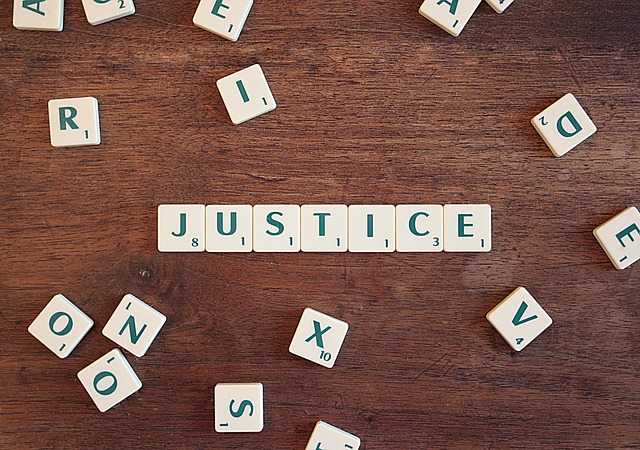Class Action Lawsuits offer a cost-effective, collective alternative to individual legal action against corporations for systemic wrongs, potentially yielding larger settlements and sending a powerful message about acceptable corporate behavior. When facing securities fraud, investors can choose between class actions, with their broader benefits but shared proceeds, and individual lawsuits, which provide tailored justice but higher costs and risks per plaintiff. Class actions are ideal for high-stakes cases, aiming for substantial monetary compensation, corporate accountability, and deterrence of future misconduct. The process involves filing a complaint, discovery, court assessment, certification, trial or settlement negotiations, ultimately achieving notable settlements like a 2017 tech company case with a $415 million award.
“In the complex realm of securities litigation, class actions stand as a powerful tool for investors seeking justice. This comprehensive guide navigates the intricate world of Class Action Lawsuits versus Individual Lawsuits, dissecting their unique dynamics and implications. From understanding the foundational principles to exploring key benefits, this article provides an in-depth overview. We delve into the process, key stakeholders, and notable settlements, offering insights that illuminate the impact of class actions on the financial landscape.”
- Understanding Class Action Lawsuits: A Comprehensive Overview
- The Difference Between a Class Action and Individual Lawsuit
- Why Choose a Class Action: Benefits and Impact
- Key Players and Process in Securities Class Actions
- Case Studies: Notable Securities Class Action Settlements
Understanding Class Action Lawsuits: A Comprehensive Overview

Class Action Lawsuits are a powerful legal mechanism that allows groups of individuals to join forces and take on powerful entities, such as corporations, in pursuit of justice. Unlike individual lawsuits, where each person bears the cost and risk of litigation, class action suits pool these resources, enabling plaintiffs to demand significant changes or financial compensation from defendants. This collective approach not only ensures access to justice for those who might otherwise be deterred by legal costs but also sends a strong message across the country about what’s acceptable corporate behavior.
While individual lawsuits focus on personal harm and seek compensation for specific instances, class action lawsuits aim to address systemic issues affecting large numbers of people. By avoiding indictment and focusing on collective redress, these suits can lead to significant changes in corporate practices and even influence philanthropic and political communities. The impact extends beyond monetary settlements; it can shape industries, enforce regulations, and foster a culture of accountability.
The Difference Between a Class Action and Individual Lawsuit

When considering legal action for a securities-related dispute, understanding the distinction between a class action lawsuit and an individual lawsuit is paramount. A class action lawsuit involves a group of investors who have suffered similar losses due to alleged misconduct by a company or its representatives. This type of lawsuit aims to provide redress for all members of the class, with legal fees often being paid from the settlement funds, making it accessible even to those with smaller claims. In contrast, an individual lawsuit is brought forth by a single investor who believes they have been wronged and seeks personal compensation.
While individual lawsuits offer more tailored justice and potentially higher damages for the plaintiff, they can be costly and time-consuming. On the other hand, class actions aggregate claims, leading to larger settlement amounts that may benefit many. However, successful class action plaintiffs share the proceeds with other members of the class, whereas individuals keep the entire award from their respective business or across the country, depending on where it originated.
Why Choose a Class Action: Benefits and Impact

When considering legal action for securities fraud or misconduct, many victims face a choice between a class action lawsuit or an individual lawsuit. Choosing a class action offers significant advantages, especially in cases involving large corporations and complex schemes. In a class action, the collective strength of numerous affected investors is leveraged to achieve justice. This approach can result in substantial financial recoveries for all plaintiffs, often surpassing what an individual case might secure. Moreover, class actions send a powerful message to the corporate world, holding bad actors accountable and potentially deterring future misconduct.
Unlike individual lawsuits, which may lead to a complete dismissal of all charges due to procedural hurdles or limited resources, class actions have the potential to bring about systemic change. They allow for the allocation of resources more efficiently, as legal fees and costs are shared among the entire group. This collective effort ensures that the philanthropic and political communities benefit from increased awareness and stronger enforcement of securities laws. Ultimately, a well-executed class action can protect not only the interests of individual investors but also the integrity of financial markets as a whole.
Key Players and Process in Securities Class Actions

In securities class actions, key players include plaintiffs—investors who suffered losses due to alleged corporate misconduct—and defendants, typically companies and individuals accused of violating securities laws. These cases often involve complex financial transactions and require meticulous legal analysis. When compared to individual lawsuits, class action suits aim to provide a more efficient and effective means of addressing widespread wrongs, with the potential to achieve extraordinary results in high-stakes cases across the country.
The process begins with the filing of a complaint, followed by extensive discovery where both sides gather evidence. The court then assesses the merit of the case and, if suitable, certifies the class. This certification allows all members of the proposed class to join the lawsuit collectively. From there, the matter proceeds to trial or settlement negotiations. Successful outcomes can result in substantial monetary compensation for affected investors, holding corporations accountable for their actions, and serving as a deterrent for future misconduct.
Case Studies: Notable Securities Class Action Settlements

In the realm of securities litigation, notable settlements from class action lawsuits stand as a testament to the power of collective legal action. These cases often involve massive financial gains for harmed investors, serving as a game-changer in their quest for justice against corporate wrongdoers. For instance, a prominent example is the 2017 settlement in which a class action lawsuit against a major tech company resulted in a $415 million award. This substantial sum was distributed among thousands of individual clients who suffered losses due to the company’s misleading financial disclosures.
Comparatively, an individual lawsuit may only target specific damages for a single plaintiff, whereas a class action focuses on collective redress for a larger group. As such, class actions are particularly suited for high-stakes cases where the potential rewards can outweigh the costs, enabling investors to band together and navigate all stages of the investigative and enforcement process collaboratively. This collective approach often leads to more significant settlements, ensuring that corporate and individual clients alike face the consequences of their actions.
Securities class actions offer a powerful mechanism for investors to hold wrongdoers accountable and seek justice. By understanding the distinctions between class action lawsuits and individual claims, investors can make informed decisions on the best course of action based on their specific circumstances. These collective efforts not only provide significant financial remedies but also serve as a crucial check on corporate misconduct in the securities market. When navigating complex financial matters, recognizing the benefits and potential outcomes of class actions can empower investors to join forces and create a lasting impact.






